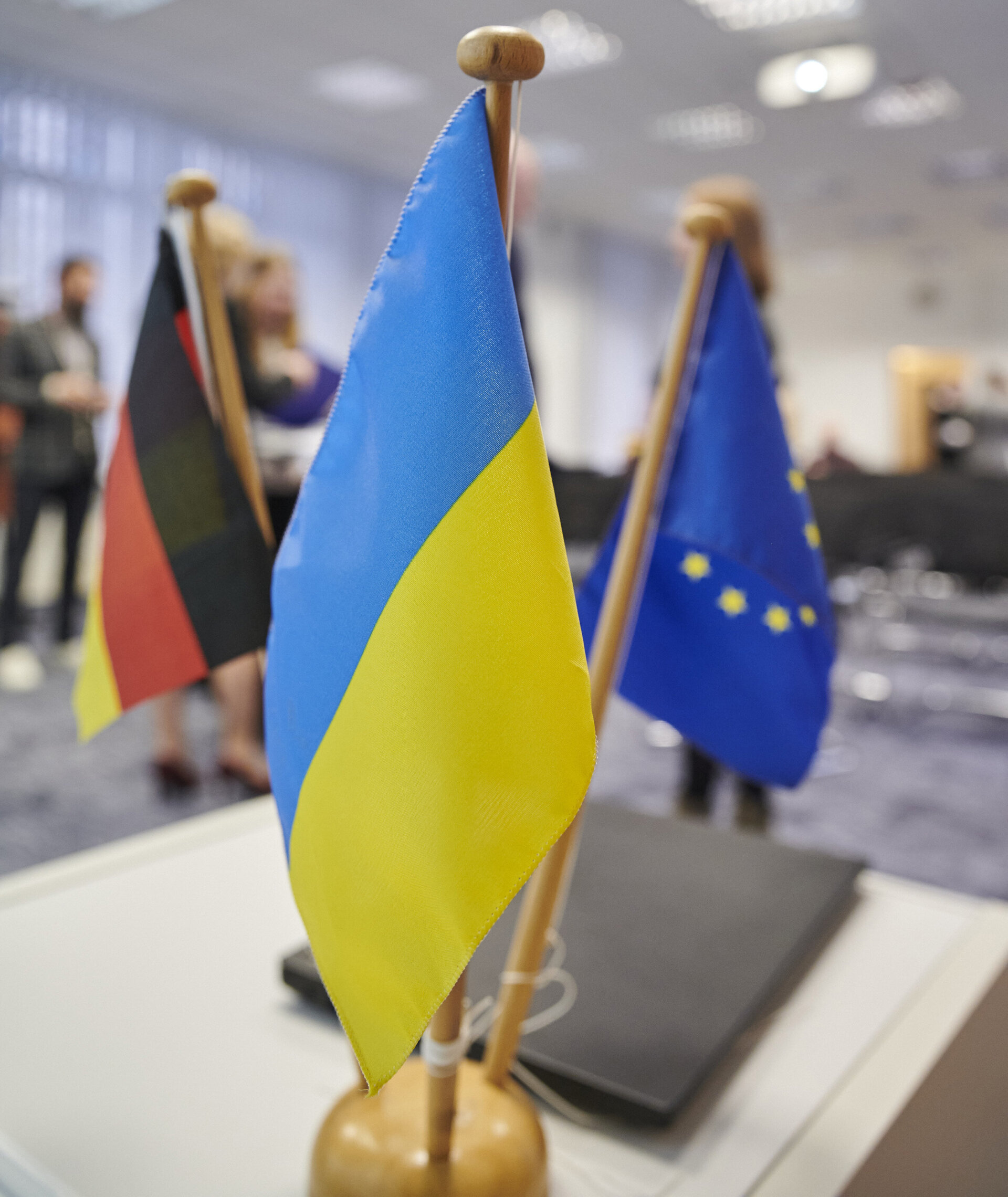Partnering in Business with Germany promotes foreign business with Ukrainian companies
Six years after the last bilateral meeting in Kyiv, the 12th meeting of the German-Ukrainian steering committee of Partnering in Business with Germany was held on 21 March at the Federal Ministry for Economic Affairs and Climate Action in Berlin. Due to the coronavirus pandemic and then the war, the programme had to be interrupted for a significant period of time. This made this year’s meeting and looking together at what the programme has achieved to date even more important. In these challenging times, the programme is also seen as an instrument that promotes the reconstruction of Ukraine by initiating business with German companies. The experience of German companies in circular economy, energy efficiency and construction technologies is particularly in demand.


In Ukraine, Partnering in Business with Germany is valued above all as strong pillar of support for the development of the individual industrial sectors in the Ukrainian regions.
Here, Oleksandr Palazov, Head of Department for Regulatory Policy and Entrepreneurship at the Ministry of Economy of Ukraine, highlighted what he considers to be “unique” about the programme, saying that the initiation of cooperation goes hand in hand with skills development. He also said that the experience of German companies had helped Ukrainian companies successfully establish the “Made in Ukraine” brand. Mr Palazov conveyed to the committee that Ukraine appreciates the flexibility of Partnering in Business with Germany as an instrument of foreign trade and investment promotion. He said that the programme is always ready to focus on new topics that reflect the mutual needs of businesses. Ms Gerlind Heckmann, Director for promotion and financing of foreign trade and investment; Ukraine – Eastern Europe, Caucasus, Central Asia at the Federal Ministry for Economic Affairs and Climate Action, also lauded Partnering in Business with Germany as an instrument providing a real win-win for the promotion of foreign business among SMEs in both countries.
The interest and demand for Partnering in Business with Germany in the Ukrainian business community has always been high and continues to be strong. In view of the difficult situation in Ukraine, many German companies have become more cautious about cooperating with Ukrainian companies. Picking up on this issue, Ms Heckmann said: “The Federal Ministry for Economic Affairs and Climate Action is doing everything it can to support German businesses as they move towards activities in Ukraine. The instruments of foreign trade and investment promotion are also available in these difficult times. In particular, these are export credit guarantees and investment guarantees.”
The steering committee also offers former participants a platform to report on their successes. This year, these included Mr Yaroslav Chaikyvskyy, head of the emergency hospital in the city of Ternopil, who told the committee he was delighted about the contracts concluded with German manufacturers of prosthetic components. Partnering in Business with Germany has enabled Mr Chaikyvskyy to acquire knowledge that has increased the quality of medical care and the variety of treatment options. There are currently a large number of patients in Ukraine who require rehabilitation, including prosthetics. Certain prosthesis components are now soon to be delivered to Ukraine, and Ukrainian orthopaedic surgeons to be trained in Germany.
Against the backdrop of the particular situation in Ukraine, there was increased interest from large Ukrainian companies in participating in the programme at the end of 2023. Following the steering committee meeting, it will now be examined how more of these companies may be included in the programme.
Teaser Picture: ©GIZ/Björn Hickmann